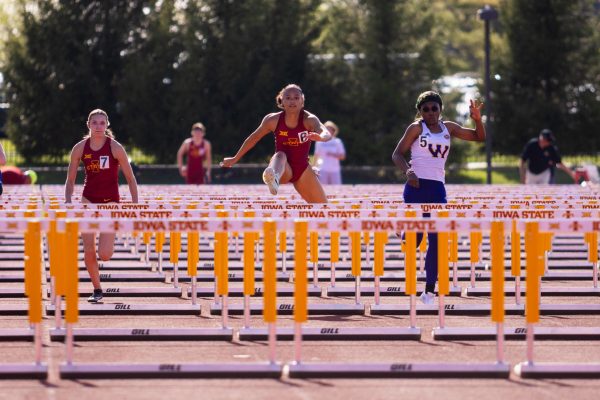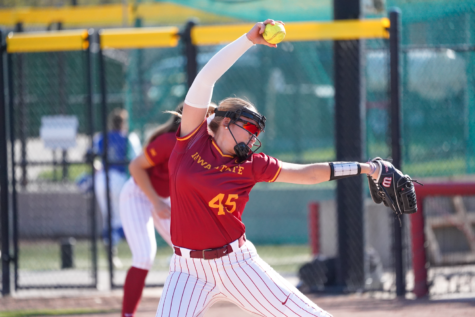NCAA eligibility issues plague incoming recruit
May 22, 2003
ISU men’s basketball recruit Justin Holt, a 6—7 forward from Tacoma, Wash., may not be allowed to play for the Cyclones next season, apparently because of an NCAA rule requiring him to earn an associate’s degree from a two-year college.
However, ISU athletic officials said they are communicating with the NCAA to try to secure Holt’s eligibility for the 2003—2004 season.
Holt enrolls at Oregon State, transfers to Tacoma
The problem stems from Holt’s decision not to attend Oregon State, the school with which he originally signed, after coach Ritchie McKay left the Beavers to become the head coach at New Mexico.
According to an Oct. 6, 2002, Associated Press article, Holt signed with Oregon State, a Division I school, out of Tacoma Lincoln High School. He spent 6 1/2 weeks there in a summer session before enrolling at Tacoma Community College.
Holt spent the entire year at the community college, where he averaged 22.5 points and 9.2 rebounds per game for the Titans.
According to a Sept. 11, 2002, Associated Press article, Holt never enrolled at Oregon State for the fall term. Oregon State’s fall trimester began on Sept. 30, 2002, according to the school’s Web site, http://oregonstate.edu.
Holt received a release from his national letter of intent, which would have required him to attend Oregon State for one academic year, and he committed to Iowa State in October 2002.
NCAA “4—2—4” Transfer Rule
However, Holt’s attendance at Oregon State in the summer of 2002 may prevent him from playing for Iowa State until he has either earned a two-year associate’s degree or spent one year in residence at Iowa State.
According to provisions in NCAA bylaw 14.5.6, a player who begins his career at a four-year college and then transfers to a two-year college cannot transfer to a second four-year college and be immediately eligible for sports — the player has to be in residence for one full year before being able to play.
For Holt, that means either sitting out one year at Iowa State or spending another year at Tacoma Community College.
That requirement is waived when the player completes the requirements for a degree from the two-year school with a “C” grade average and has been away from the original four-year college — in Holt’s case, Oregon State — for more than one year.
The Daily was unable to learn when Holt’s transfer from Oregon State officially took place, but the earliest press mention of that decision is a Sept. 11, 2002, Associated Press article.
At issue is whether Holt’s summer attendance at Oregon State constitutes an initial enrollment. According to the Oregon State Registrar’s office, a student accepted for admission in the fall can change the date of admission to summer in order to take classes the summer after the student’s senior year of high school, as Holt did.
Iowa State’s role
Bill Smith, the director of compliance for Iowa State’s athletic department, said he could not comment on Holt’s case because it involved Holt’s academic record, which is protected by the 1974 Family Educational Rights and Privacy Act. That law requires a student to provide written permission before any information from the student’s educational record can be released.
Smith did say he hoped Holt would be able to play for Iowa State this winter.
Holt is the last member of Iowa State’s recruiting class whose status is still undetermined. Reggie George, Curtis Stinson, and Will Blalock all said they would honor their letters of intent after ISU head coach Wayne Morgan was hired on May 14. Forward Damion Staple recommitted to the Cyclones after a weekend visit to Ames where he met with athletics officials and members of the basketball team.
















